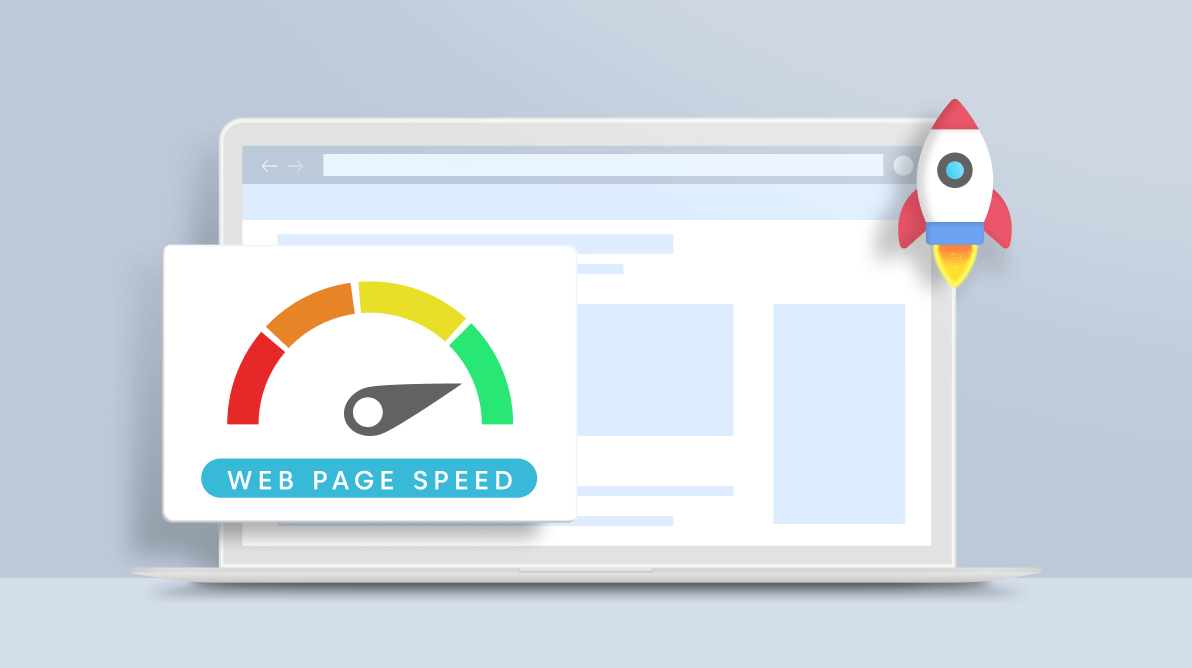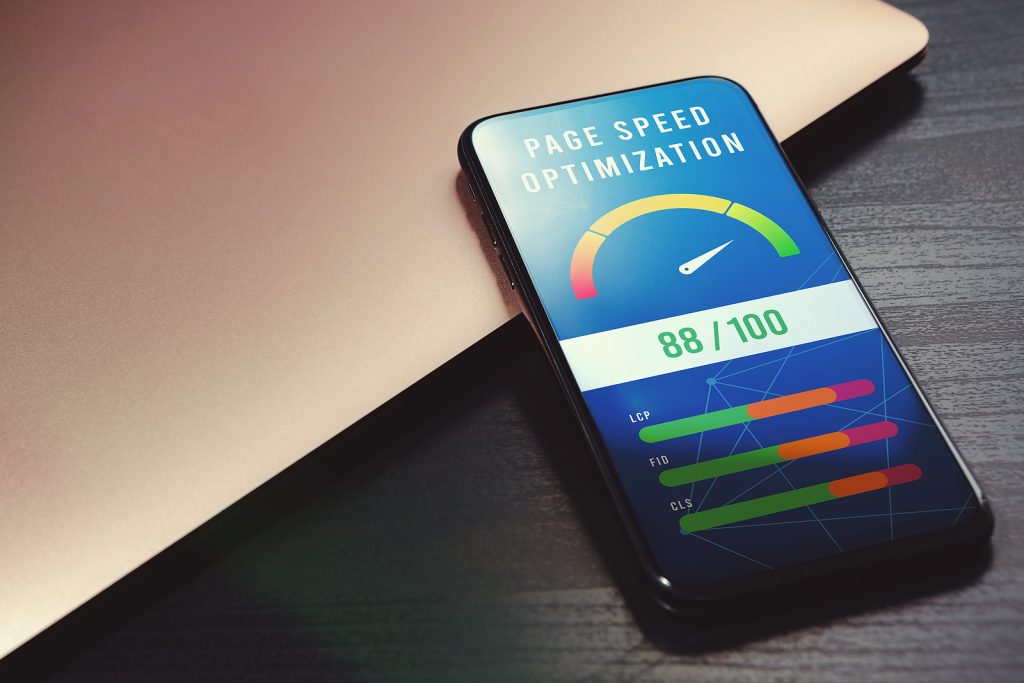
Think the impact of website speed isn’t all that important? Think again. Here are the impacts page speed has on your user experience and SEO.
Consumers today are used to incredible speed, and the impact of website speed is crucial. Information and answers are just a click away. And if that isn’t the case on your website, they’ll bounce and go somewhere else because the reality is, they can find it in many other places. It won’t matter that your website is the best source of the information or the most complete source if your website is sluggish based on modern standards.
Page speed heavily influences both the user experience and SEO. Learn more about those implications and why your website’s page speed should be something you give attention to right away.
Page speed looks at how fast your webpage loads. Many factors impact page speed, such as your website host, page size and how you’re handling photos.
When evaluating page speed, tools and search engines evaluate both mobile and desktop versions of your site. The speed is based on how long it takes for a page to fully display content to the user. Experts measure it in seconds.
Measuring page speed is somewhat complex because it’s a matrix of metrics. Those metrics include the following.
Search engines have emphasized the importance of page speed many times, both for mobile and desktop users. So, the faster your website loads in comparison to your competitors, the higher it will likely rank.
The reason why search engines care about page speed is the other point of this article: user experience. Search engines want users to have a good experience at the links they lead them to so that they keep coming back for answers to their queries.
Webpages that take longer than three seconds to load have three times the bounce probability of websites that load in less than three seconds.
Page speed directly impacts these factors related to SEO.
The higher your bounce rate, the lower search engines will likely rank you because it says something about how well you fulfill customer needs. Website users bounce when they go to a webpage, it takes too long to load or they aren’t happy with the results, and they hit the back button or close the browser window to leave.
As your bounce rate increases, you might see a direct correlation with lower search result rankings. Slower websites often lead to reduced traffic due to poor engagement and conversions.
Mobile visits account for 58.67 percent of all global website traffic. That metric has climbed steadily since 2015, when it accounted for just 31 percent of global website traffic. Now that mobile is the majority, more emphasis is placed on creating a good experience for these users.
Plus, mobile website visitors have limited processing power and bandwidth, meaning they need a fast, seamless experience.
Google has stated that it uses mobile-first indexing as a metric, which has further encouraged businesses to improve their speed to get in front of the nearly 60 percent of website visitors coming from mobile.

Websites don’t just magically appear in search results, though it might feel that way to some businesses. The search engine is constantly crawling websites using bots. That crawl leads to content indexing.
If the bots can’t crawl your website, your pages won’t get indexed. So, you should not do anything to deter bots from crawling and indexing your pages because if you do, you likely won’t have visibility in search results. Ensure that your website is easily accessible to both users and bots.
Too often, people talk about page speed exclusively as an SEO metric. But it is so much more than that. The user experience is crucial because it not only affects users who find your website organically through search engines but also those you’ve paid to go to your website through ads, event partnerships or collaborations with third parties.
If you have a poor user experience on your website, it won’t matter where the user is coming from to arrive on your site, they’ll bounce and look for that information elsewhere. When it comes to user experience, here’s why page speed is essential to putting your best foot forward.
Website load speed is the first interaction that a consumer will have with your business. A slow website is frustrating and can lead users to think of you in a negative light. Even if someone has highly recommended your business to the consumer, they might still bounce without a care because you’ve put friction between yourself and that user.
A fast-loading website creates a great first impression and delivers on the promises you’ve made in ads, networking at events or earning word-of-mouth advertising through outstanding experiences.
Building strong relationships with customers and retaining them year after year requires good experiences. The user experience includes many factors, such as value-added content, quality of products and services, enjoyable interactions with business representatives and more.
If you sell your products and services through your website, consider taking some time going through the checkout process. Look for areas of friction that reduce the user experience. Consider whether you’re asking for more information than you really need to deliver your products, slowing down the process.
Look at how clear it is to take the next step to complete a purchase. And how easy it is to input payment information.
But don’t just focus on how easy it is to purchase from your company. Ask an unbiased third party to visit your website seeking customer support or answers to FAQs. Measure how quickly they can find the information and whether they still have questions once they are done.
Emphasizing retention will help ensure you don’t have tons of first-time customers who never return to your website.
The user experience isn’t just about speed. It also evaluates how engaging your website is. Consider how quickly your interactive sections load to help engage your audience to spend some time exploring your business.
When interactive pieces take too long to load, users can get bored and move on. Maybe that means leaving a transactional page where they can learn about your products and add them to their cart to explore other sections of your website, or maybe it means leaving entirely. Regardless, it isn’t an action you want to encourage.
Visit your website from various devices on various browsers and take a hard look at what loads first. Consider whether your best, most interactive content is the last to paint on the page and if you can improve that with some optimization.
When you aren’t sure how to improve your SEO and user experience with page speed optimization, turn to the experts. New Light Digital is skilled in creating engaging experiences online for businesses of all types. Schedule your free consultation now to get started.
Further reading: